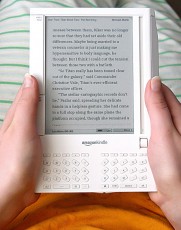Options For Self-Publishing

In the past, this would be the point where you would print out a copy of your manuscript on high quality paper or, in later years, save it to a rich text document and begin shopping it around to publishers. Each one would take their own sweet time getting to it and each one would want exclusivity and would get uppity if you submitted to other publishers during their review and evaluation period. You poured over a dog-eared annual edition of The Writers Market to see what publishers were looking for which type of book and what their specific submission guidelines were this year. Some wanted double spaces, some wanted sample chapters, and some wanted a letter of introduction. Some refused to read manuscripts from unpublished or unrepresented authors. It was up to the prospective author to find out the specifics for each publisher to which they submitted and let me tell you, this was not easy back in the old days when we wrote everything on – *gasp!* – typewriters.
Precious writers, the world is now your oyster and you are literally hours away from being a published author.
The first thing to consider is how you want your books published. Are you releasing your book as an ebook? A print book? An audiobook? All are options for self-publishing.
There are plenty of intermediaries out there ready to do the work for you in exchange for a huge chunk out of your royalties. These companies are everywhere and they will accept your raw manuscript in MS Word or rich text format (such as from Open Office) and then will do all of the formatting and uploading for you. They will submit to the main venues of Kindle, Createspace, Nook, and iTunes. You do nothing else except send the manuscript and your cover to them.
While this is certainly an option, do you really want to give someone else a large percentage of your book forever? Not me! I worked hard writing those books and I want all of the royalties to go to me. There is definitely a learning curve and it may take you several tries to get the formatting just right for your submission, but it is well worth learning the art. Once you get the hang of it, you will be able to take a book from MS Word document to publication in a matter of minutes.
When you move into print formatting, things get a little more complicated, especially if you have illustrations or photographs in your book. On this website, we will go through each type of formatting so that you know exactly what you do for each one.
Generally, Kobu, iTunes, and Nook require formatting very similar to Kindle Direct Publishers.
